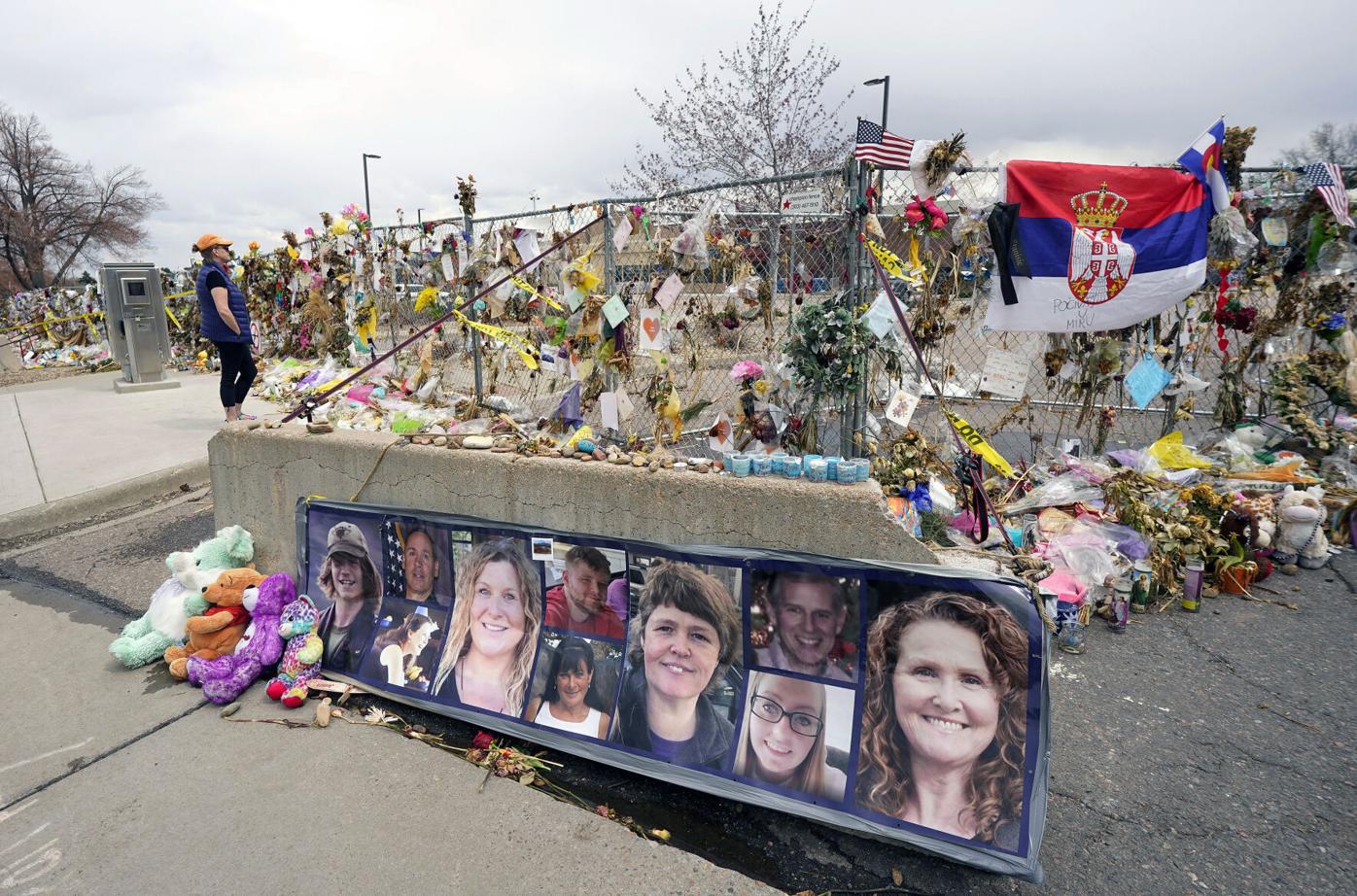Gun-control bill targets small biz — not killers | George Brauchler
This week, the Democrat-controlled Legislature sent a bill to Gov. Jared Polis’ desk that falsely claims to address — and prevent — mass shootings. That is fake. The anti-gun owner bill exists as the first step toward a more ambitious goal of eliminating retail gun stores by discouraging banking institutions from doing business with them.
Senate Bill 24-068, a bill inspired by a podcast its Democrat sponsor heard, is called the Firearms Merchant Category Code bill. It mandates that retail gun shops — not the big box stores who sell firearms, like Cabelas or Gander Mountain, but those like Centennial Guns, or DCF guns — use special codes to identify firearms purchases made with credit cards. Those codes would automatically be sent to credit card companies, allowing them to catalog firearm and ammunition purchases.
Law enforcement cannot access the information without following specific procedures, including a grand jury subpoena. However, the federal law that protects our financial information from the government creates an exception for banks that suspect criminal activity. Financial institutions are provided “ harbor” from such reporting to law enforcement, meaning they are protected from lawsuits by those of us who feel betrayed by our bank. They do not even have to tell us when they give up such sensitive information to law enforcement.
Sponsors and supporters of this anti-gun legislation testified that it was a “ for law enforcement,” as state Rep. Meg Froelich said. Yet, no member of law enforcement testified at that Senate hearing to wanting or benefiting from such a tool. Weird.
Witnesses supporting the bill repeated that 8 out of 10 of the biggest mass shootings in America used credit cards to purchase firearms, as if knowing that fact in advance would have led to their detection and the prevention of the mass shooting through claimed “ of purchases.” No testimony drew such a connection, just “ credit cards were used, so ….”
What is “ enough to invite law enforcement to investigate a law abiding citizen? An avid hunter who makes several firearms purchases, or capitalizes on cheap ammo? What about the gun collector? How many innocent Coloradans have to suffer police at their door asking about recent gun purchases? Will our cops get a warrant with such information? Nope, not on that info alone. Will they sit on the house of the gun purchaser waiting for them to leave for a school, church or theater? Not likely.
The reason a podcast generated this bill, and not law enforcement based on legitimate data, is because it is a canard. Coloradoans experience is that such a law would not have prevented our most recent and most notorious mass shootings (I prosecuted the top three in the list).
Columbine: Two shotguns and a rifle were legally purchased from an unlicensed gun dealer at a gun show by one of the killers girlfriend. The Tec-DC9 handgun was purchased illegally and for cash.
Aurora Theater: The mass murderer used multiple methods of payment — including a bank card, PayPal and checks — to legally purchase the firearms, ammunition and body armor he used. He did that to avoid detection. Had this law existed then, this hypervigilant and evil intellect would have used cash to purchase everything. Of this, I have no doubt.
STEM School: The legally purchased, and long-term owned firearms were broken out of a safe with an ax and crowbar by the mass shooters and murderer of Kendrick Castillo.
Arapahoe High School: The killer legally purchased the shotgun with which he murdered Claire Davis and intended to murder numerous others.
Mountain Vista HS: The two would-be mass murderers were trying to obtain a firearm illegally from an individual (not a retail store), before their plot was discovered and stopped.
Club Q: The mass murderer illegally made and obtained the firearms he used. He could not have legally purchased a firearm from a retail store.
Boulder King Soopers: The mass murderer legally purchased the firearm he used. There was no “ to report.
What about preventing run-of-the-mill gun crimes? A U.S. Department of Justice Bureau of Justice Statistics report from a survey of prison inmates revealed that a mere 1.3% of them purchased firearms from a retail store.
It takes no imagination to foresee that what this law creates is liability for the financial institutions, not for what they disclose, but for what they fail to disclose. Imagine victims of gun crime discovering that their loved ones assailant recently had made “ purchases of firearms and ammo prior to the murder — and the credit card company did not report it to the authorities. Lawsuits. Lots of them. It is irrelevant whether they are successful, because the cost of them is a liability and a cost that can only be prevented by either: 1) reporting every firearm transaction, or 2) refusing to accept firearm-coded purchases from the small retail gun shops. Goodbye, local retail gun shops.
Those are the goals, and the vehicle for them does not implicate the Second Amendment, because the bill cajoles private banking institutions into doing what the government never could. If our states experience with mass shootings is a predictor, this backdoor way of frustrating Coloradans’ ability to exercise their Second Amendment rights likely will save no lives.
Of course, for those planning mass murder, or just trying to avoid their purchasing decisions from being handed over to the government, the use of cash to purchase firearms and ammunition would defeat this misguided and ineffective bill. Polis should veto it.
George Brauchler is the former district attorney for the 18th Judicial District and is a candidate for district attorney in the newly created 23rd Judicial District. He has served as an Owens Early Criminal Justice Fellow at the Common Sense Institute. Follow him on Twitter(X): @GeorgeBrauchler.





